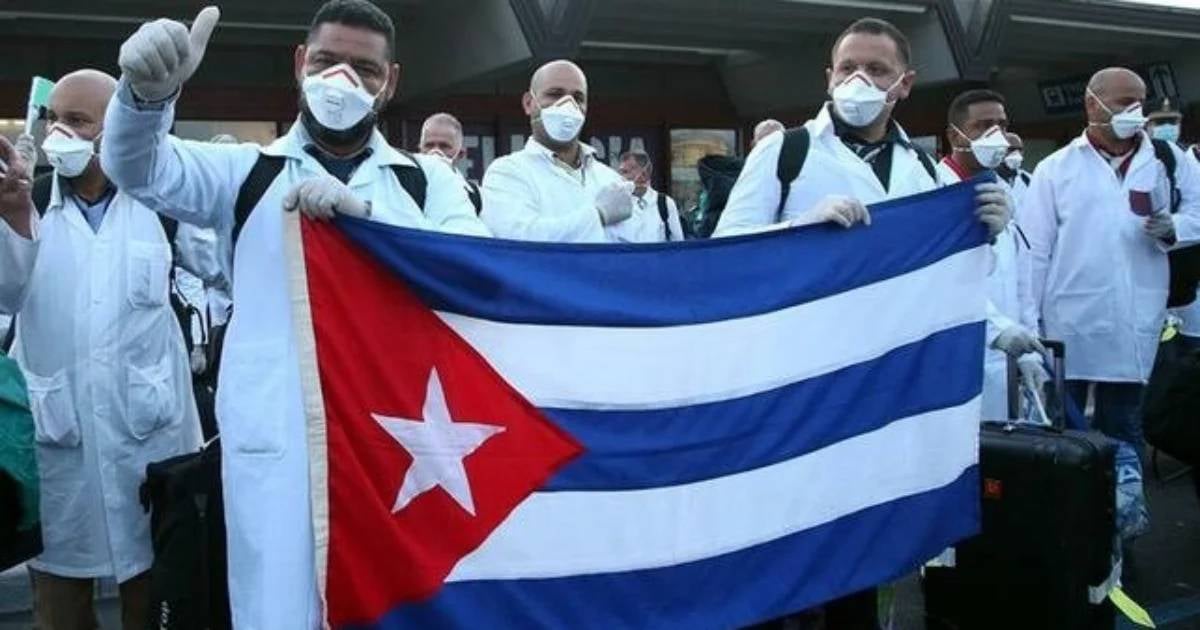Despite the Bahamian government's public assurance of paying Cuban doctors directly, the salary confiscation mechanisms enforced by the Cuban regime continue unabated. Several former medical brigade members revealed to Martí Noticias that even with direct deposits from the local government, Cuban professionals were compelled to channel most of their earnings into accounts managed by the Cuban state.
This complaint has gained renewed attention amid a review of bilateral agreements prompted by diplomatic pressure from Washington, with U.S. Secretary of State Marco Rubio frequently highlighting the presence of forced labor within these missions. "We received our full salary, but Cuba demanded we send nearly all of it back via bank drafts," recounted a doctor who worked in 2018, speaking anonymously for fear of reprisals.
The Regime's Adaptation Tactics
Although Bahamian Prime Minister Philip Davis announced that salaries would now be directly transferred to Cuban doctors to avoid international criticism, activists and analysts argue that this does not address the root of the problem: the regime's coercive control over its overseas professionals. According to María Werlau, director of Archivo Cuba, the Cuban government has adjusted its methods under external scrutiny. Instead of demanding bank transfers, the regime now resorts to collecting cash, using individuals like the mission's "economic" officer, who instructs the transfer of salaries through fictitious online purchases with entities like RBC Dominion Securities, a Royal Bank of Canada subsidiary.
"Havana has gone into panic mode," Werlau warned, highlighting a pattern of adaptation designed to evade financial tracking.
A Systemic Confiscation Scheme
Journalist Annarella Grimal, an expert on medical missions, pointed out that the situation in the Bahamas is not unique. In several countries where Cuban brigades operate—such as Venezuela, Angola, Qatar, or Jamaica—the salary appropriation mechanisms are equally systematic. "In the Bahamas, the withheld percentage can exceed 70% of the gross salary," Grimal explained. "This is not about medical cooperation but rather a structure of state exploitation."
Documents acquired by Martí Noticias reveal direct transfers from Bahamian banks to the Commercializadora de Servicios Médicos Cubanos, a state company linked to the Banco Financiero Internacional, controlled by the Cuban Armed Forces. To mask the forced nature of these remittances, collaborators were instructed to declare them as "family shipments."
Is This a Genuine Solution or Just a Facade?
While the Bahamian government's gesture has been presented as a step forward in labor rights, experts question its real effectiveness. As long as workers remain under surveillance, threats, and political pressure, the issue persists under a different guise. "Changing who transfers the money is not enough," Grimal stated. "The coercive system forcing workers to hand over a significant portion of their wages must be dismantled. Otherwise, we'll continue witnessing the same practice under a new disguise."
Summary of Dr. Lucio Enríquez Nodarse's Letter to Marco Rubio
Through Facebook, Dr. Lucio Enríquez Nodarse, currently residing in Spain, expressed his gratitude to Marco Rubio for his dedication to eradicating the labor exploitation of Cuban doctors in international missions. Although direct payment to medical collaborators has begun in the Bahamas, he warns that this measure does not eliminate the Cuban regime's coercion, which still forces professionals to transfer a large portion of their income to state accounts.
The doctor reports that those who refuse to send the money are expelled from the mission, and once out, they cannot practice in the host country due to pressure from the Cuban government on local authorities. In light of this, he urges Rubio to advocate for the reactivation of the humanitarian parole program for Cuban doctors as the only effective means of ensuring their freedom and real protection in the United States. He concludes by expressing his appreciation for any efforts made to support this humanitarian cause.
FAQs on Cuban Doctors' Salary Issues in the Bahamas
Why are Cuban doctors required to send their salaries back to Cuba?
Cuban doctors are forced to send their salaries back to Cuba due to the coercive control of the Cuban regime, which requires them to remit most of their earnings to state-controlled accounts.
What measures has the Bahamian government taken regarding Cuban doctors' payments?
The Bahamian government has announced direct salary transfers to Cuban doctors to avoid international criticism, but this measure does not fully address the issue of the Cuban regime's coercive practices.
What is Marco Rubio's role in addressing this issue?
Marco Rubio, as U.S. Secretary of State, has been instrumental in highlighting the forced labor conditions of Cuban doctors and advocating for solutions, such as the reactivation of the humanitarian parole program for Cuban doctors.
